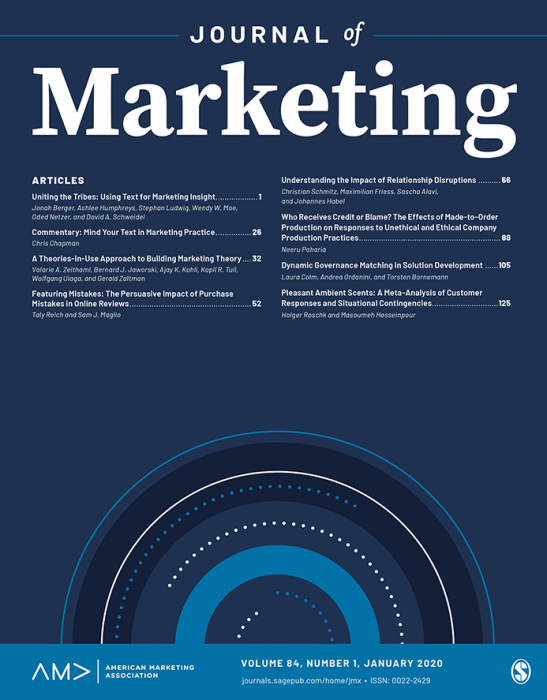产品形态战略理论:何时推销专有技术、组件或系统?
IF 11.5
1区 管理学
Q1 BUSINESS
引用次数: 0
摘要
将技术创新商业化是创业企业和老牌企业的战略目标。在这种情况下,一个尚未得到充分研究的基本决定是创新将以何种形式商业化。作者将这一决策称为公司的创新“产品形式战略”。在研究1中,他们采用了一种应用理论的方法,并通过对技术企业家和天使投资人的深入访谈和实地观察,发展了一种产品形式战略理论——将创新作为技术诀窍、组件或系统进行营销——并确定了这种选择的主要驱动因素。该理论是使用多方法,多背景方法进行测试的。在研究2中,作者在寻求天使投资者的支持时使用了创业企业产生的专有投资提案。在研究3中,他们使用电视节目《创智赢家》(Shark Tank)中技术提案的视频转录来检验这一理论。在研究4中,作者以活跃的天使投资者为研究对象,评估了该理论的内部有效性。他们发现他们的理论得到了一致的支持,并得出了理论和管理实践的启示。本文章由计算机程序翻译,如有差异,请以英文原文为准。
A Theory of Product-Form Strategy: When to Market Know-How, Components, or Systems?
Commercializing technological innovations is a strategic goal in entrepreneurial ventures and established firms. A fundamental decision that remains understudied in this context is the form in which the innovation is to be commercialized. The authors term this decision the firm's “product-form strategy” for the innovation. In Study 1, they employ a theories-in-use approach and, using in-depth interviews and field observations with technology entrepreneurs and angel investors, develop a theory of product-form strategy—to market the innovation as know-how, a component, or a system—and identify the primary drivers of this choice. The theory is tested using a multimethod, multicontext approach. In Study 2, the authors use proprietary investment proposals generated by entrepreneurial ventures when they seek support from angel investors. In Study 3, they test the theory using video transcriptions of technology proposals from the television show Shark Tank. In Study 4, the authors assess the internal validity of the theory with active angel investors as subjects. They find consistent support for their theory and conclude with implications for theory and managerial practice.
求助全文
通过发布文献求助,成功后即可免费获取论文全文。
去求助
来源期刊

Journal of Marketing
BUSINESS-
CiteScore
24.10
自引率
5.40%
发文量
49
期刊介绍:
Founded in 1936,the Journal of Marketing (JM) serves as a premier outlet for substantive research in marketing. JM is dedicated to developing and disseminating knowledge about real-world marketing questions, catering to scholars, educators, managers, policy makers, consumers, and other global societal stakeholders. Over the years,JM has played a crucial role in shaping the content and boundaries of the marketing discipline.
 求助内容:
求助内容: 应助结果提醒方式:
应助结果提醒方式:


